When Nintendo announced the title and release date for Animal Crossing: New Horizons during this year’s E3, my mom had just lost her job again, I was in another losing battle with my university’s financial aid office, and I had just started my sixth playthrough of Stardew Valley. At this point, I knew the exact number and combination of crops, animals, and tools needed to make an exorbitant amount of money early in the game. This kind of scientific precision became incredibly comforting to me during another summer of financial uncertainty.
For me, Stardew Valley and Animal Crossing, along with Pokemon, are the games that I turn to almost like clockwork whenever something bad happens in my life. In this, I am far from alone.
The idea of games being used as therapy or escapism is well established, as are the debates about their value in filling those roles. Some see the practice as avoidant, an addiction that keeps people from getting help. Others champion gaming as a form of self-expansion—the practice of becoming more interconnected and efficient human beings—in ways that more traditional coping mechanisms can’t always provide, especially in terms of creating, problem solving and socializing.
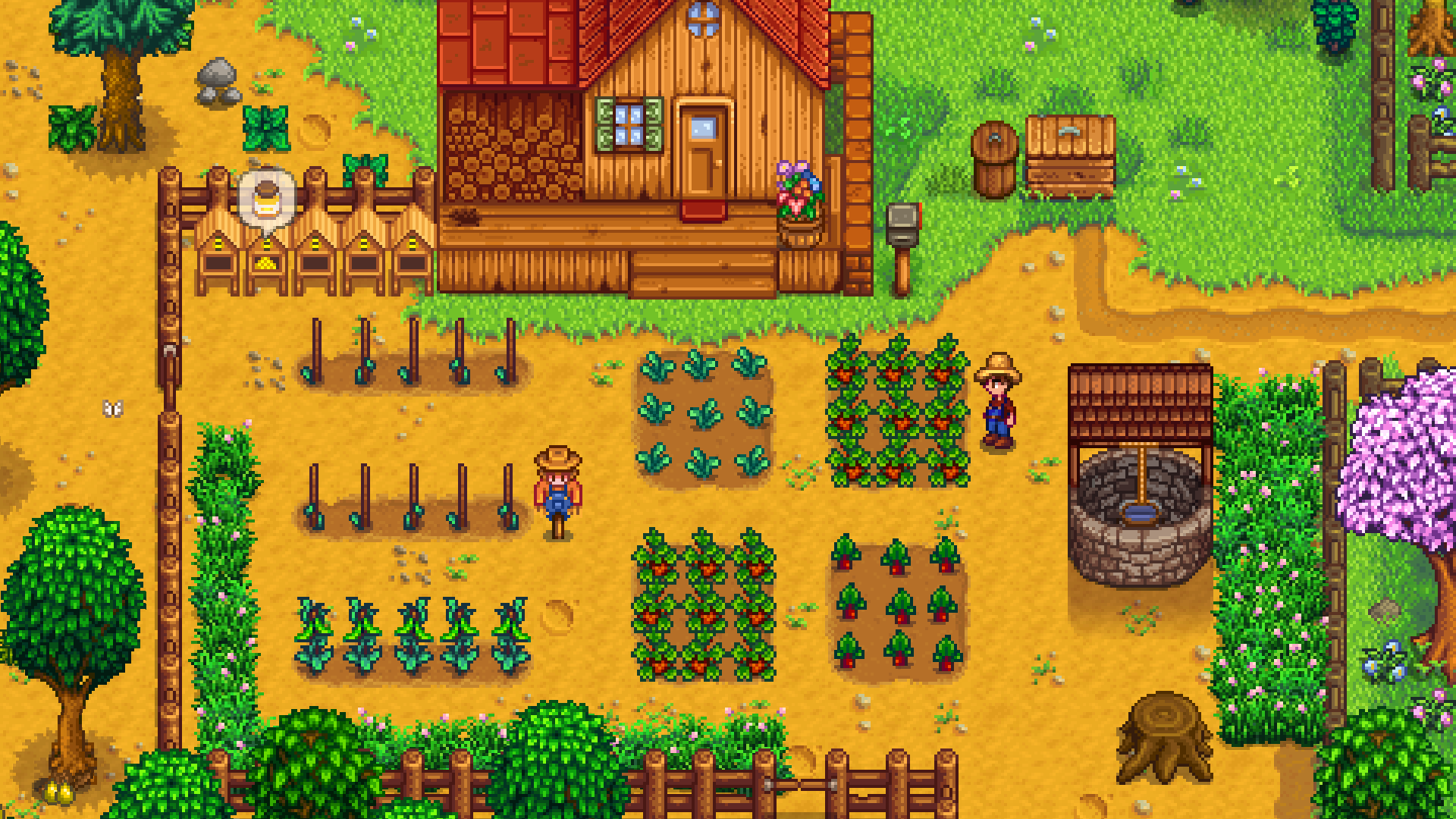
Credit: ConcernedApe
So which view is the correct one? A bunch of twenty- and thirty somethings devotedly building and decorating fictional towns and houses hardly seems like self-expansion on the surface. Animal Crossing is often jokingly referred to a form of “millennial wish fulfillment,” but there is something that’s comforting about being able to be productive in a game simulates adult life with the familiar harmlessness of childhood imagination. That many of us played these games during our own childhoods only amplifies the effect, adding an element of nostalgia into the mix.
Amanda Hicken, who has played various Animal Crossing games for the past 10 years now, said the franchise was like “a vacation” from her everyday life. She was first introduced to Animal Crossing by her husband when they graduated college.
“For me, continuing and repeatedly playing Animal Crossing means there is that fondness of before, when we were kids [or] fresh out of college,” Hicken said. “When you are in your mid-thirties, there is a lot of other life stuff going on, and it just continues to build. So revisiting the game, there [are] positive emotions tied to when we were a little bit younger.”
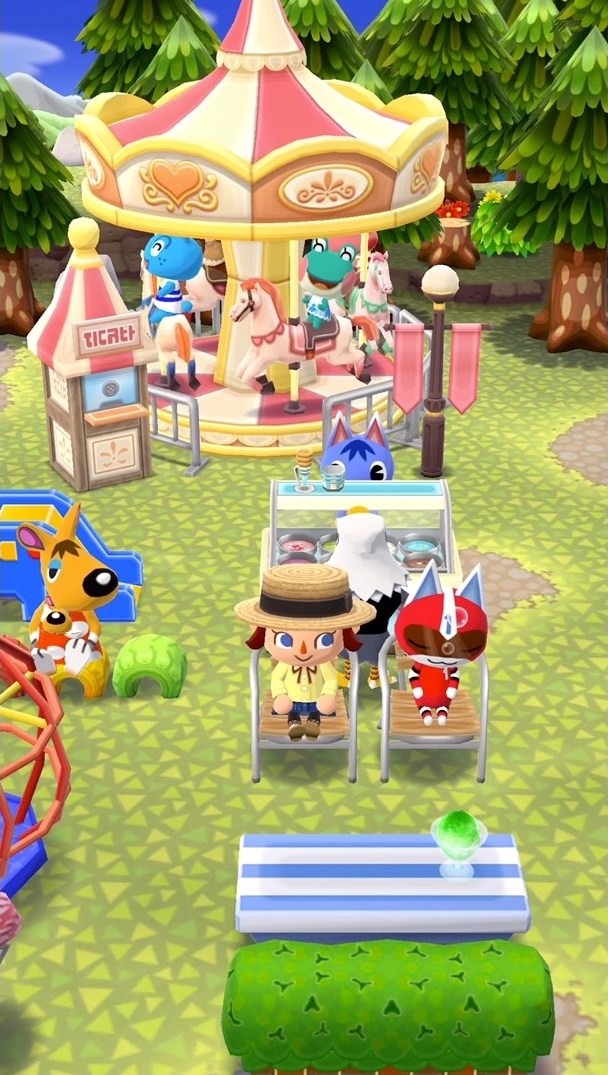
Credit: Nintendo
Hicken found that Animal Crossing helped her handle the stress of a lot of change and grief in her life from the last year: coping with the loss of a beloved longtime pet and her partner’s grandmother, dealing with infertility and navigating the adoption process, and all the while managing general anxiety over work. She found that dealing with that grief while also having to focus on the adoption process required her to constantly communicate and work through intense emotions. So having Animal Crossing portable and with her, whether it be the mobile game Pocket Camp or New Leaf on the 3DS, helped her regain an everyday sense of control.
“In this case I was playing the app multiple times a day,” Hicken said. “Pretty much every single day it was just a constant break, break from repeatedly dealing [with] and working through emotions. When I’m having a tough time with a personal loss or something along those lines, being able to pick the game up and escape and have fun by doing something like getting enough bells to pay off my loan to Tom Nook totally fills that sense of accomplishment, that little need for productivity in my life.”
The people I talked to for this story often referenced the words “productivity” and “accomplishment.” Task-oriented games like Stardew Valley and Animal Crossing allow players to make forward progress in a low-stakes, easygoing, and predictable virtual world. In addition to Animal Crossing: Pocket Camp, Hicken also referenced Stardew Valley as a game that helps her manage work anxiety. Being able to break down tasks into easy, repetitive checklists gives her a sense of control she feels like she can then tap into when working on large scale projects on the job. While she hasn’t played Harvest Moon, Stardew Valley reminds her a lot of a game she played endlessly in her childhood: The Legend of Zelda: Link’s Awakening.
Commentators often lump Animal Crossing and Stardew Valley together because they’re the two games that first come to mind when thinking of “life simulators.” Both depict daily life as quiet and often effortless, as a routine reduced to a series of small, discrete chores. Games like Zelda and Pokémon may not share the same mundane focus, but behind their grand adventures is a similar focus on short, repetitive tasks, available to tick off in a seemingly endless to-do list. Beyond the simple pull of nostalgia, it’s this feeling of expansiveness that allows the games to contrast with the stagnation players can feel in their “real” lives.
Dylan Miller was first introduced to the Zelda series as a kid when his friend showed him Ocarina of Time. Since then, he’s replayed Ocarina and Skyward Sword multiple times—he recalls the times he would repeatedly play Ocarina with family, and then endless amounts of Skyward Sword when his cat died.
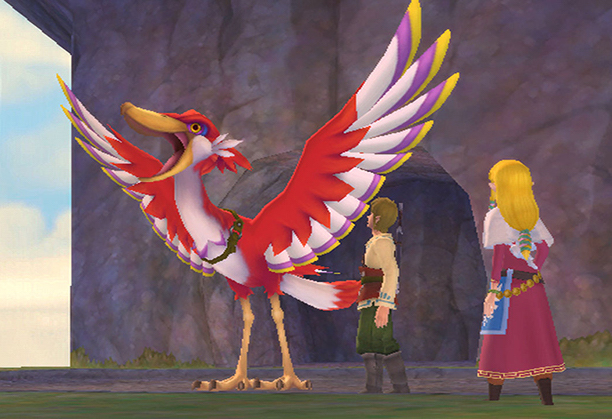
Credit: Nintendo
“I don’t necessarily long to be a child again, because there are elements of that 100 percent sucked,” Miller said. “It is more a nostalgia about simplicity. I have a great affection for Skyward Sword—I used it to deal with my cat dying. She meant quite a lot to me, and [she passed] right around the Christmas that I got Skyward Sword. I sunk into the game, and when I was playing it, it almost felt like sleeping in a way.” For Miller, focusing on the game offered a chance for his subconscious to work through his grief while his conscious mind was distracted. “Time heals all wounds, and games like Skyward Sword were the things that helped me get through that time.”
More recently, Miller found that Breath of the Wild helped him mitigate his anxiety over writing a master’s thesis. That game helped him hone his task-management skills in a “much lower-stakes environment” so that writing his thesis became a bit more approachable. The supposed “lack” of progress he was able to make on his thesis often contrasted with the relentless progress he was able to make in Breath of the Wild. To him, the game was a “love letter to old Zelda games.”
“I love all aspects of science except, it seems, writing, and that was a very difficult time that made me regularly question my life choices,” Miller said. “During that time, Breath of the Wild in retrospect was so necessary to get through it. It was so simultaneously new and wonderful yet familiar. There’s a small audio reference to Skyward Sword and it warmed my heart so much. Zelda has become one of those things that comes through my life where each game I remember them [with] specific life stages.”
Of course, just because those who play games can view them as therapy or rely on them as coping mechanisms doesn’t necessarily mean they’re a healthy way to deal with problems. Reliving the past through games can be seen as a way to ignore real life stagnation, or even to regress to a prior emotional state. Animal Crossing, Stardew Valley and Zelda can be vehicles for replacing the productivity people don’t feel like they can achieve in real life. Studies have already linked unemployment to gaming, correlating the popularity of gaming with the stall of economic conditions for young college graduates since the 1990s.
Last year, when Michael Uriarte accidentally hurt his back at work, he thought he would be out of commission for a week or so tops. The news that he wouldn’t be able to work for several months to a year made him reinvest his time in games. Because Uriarte felt like his injury was almost forcing him into another childhood, a time when he’d have to rely on others to take care of him, he not only revisited slice-of-life games but also returned to the music he used to listen when he was younger. To him, games like Stardew Valley had especially been helpful during this time.
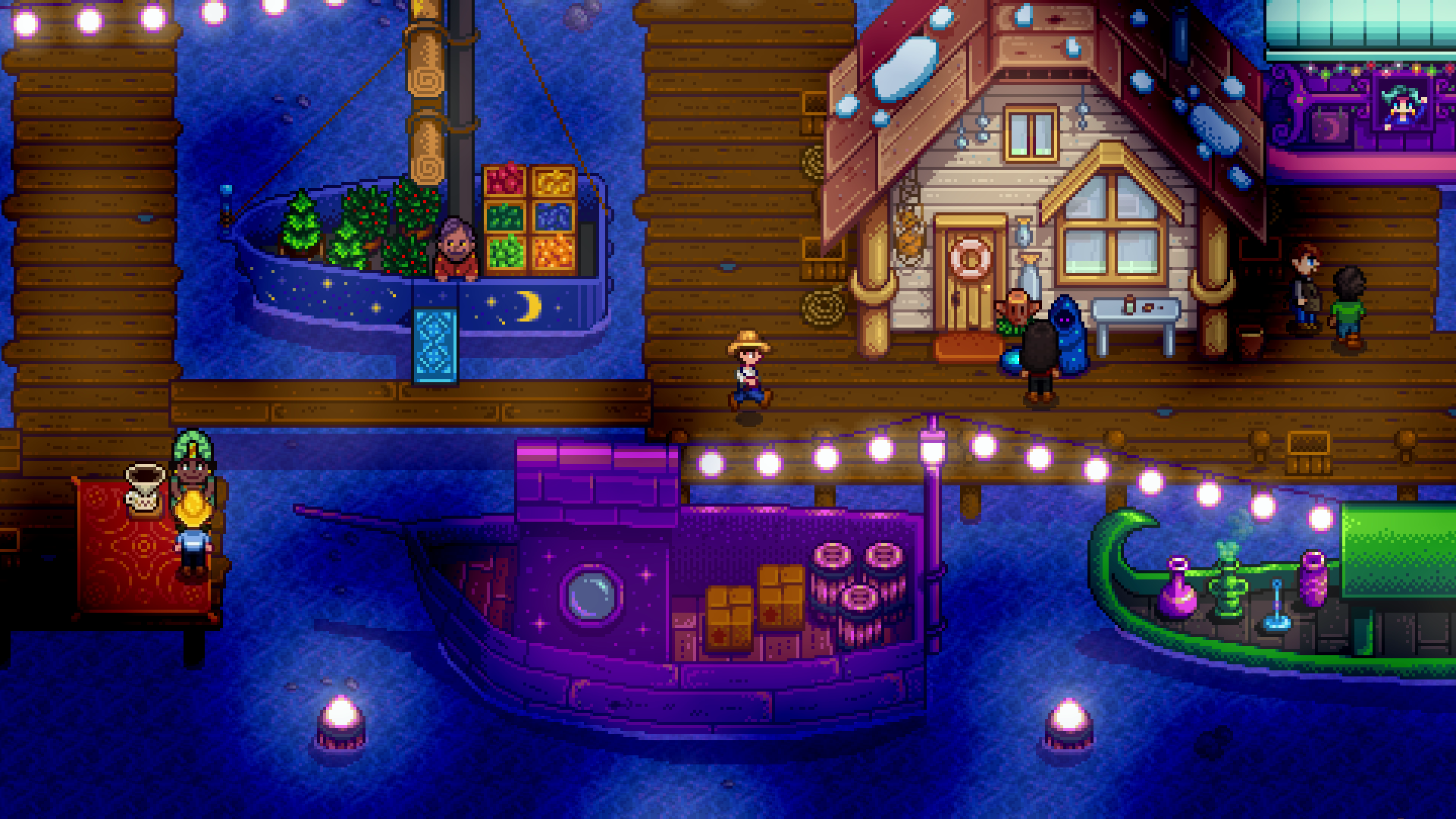
Credit: ConcernedApe
“I lost the feeling of productivity in a lot of ways. Over the course of this injury I got married to my then-girlfriend of six years, and it felt weird to not be able to even contribute,” Uriarte said. “To this day I hate going to the grocery store with her. Because of my back injury, any lifting is rough, so she gets the bigger bags. I know it’s probably not always happening, but I feel very self-conscious of people looking and judging. Like they are thinking, ‘What? She’s taking 3 bags while he’s only holding the one bag with just the bread poking out.’ I kept having the feeling that I was just having my wife take care of me, so I was feeling like a deadbeat. So at the end of the day it was soothing to go back to the game and say, ‘Well, I got my barn full of four mature cows producing milk, so at least that happened today.’”
Uriarte often mentioned using Stardew Valley to deal with this sense of guilt. He remembered playing Harvest Moon endlessly when he was a kid, whether it be on the SNES in his old room or through emulators when he was older. To him, Stardew Valley allows him to go back to that time of being taken care of and the joy he felt when he was younger of discovering and figuring out a game’s features without a reliance on internet walkthroughs. But it also helps him work and accomplish something in a seemingly endless game he “can make entirely his own.”
“There is this feeling about not needing to feel as productive in your youth. As long as you are putting one foot in front of the other and going to school you are doing fine,” Uriarte said.
Rather than avoiding or escaping from the issues he was facing, Uriarte said games like Stardew Valley helped take the sting out of disappointments that happened during the course of his injury, disappointments that could’ve impacted him a lot worse. With Hicken and Miller, being able to accomplish and grow through a game allowed them to recontextualize and process a lot of major life changes or stressors.
Game designer Jane McGonigal, in her 2013 GDC talk, said there were two types of gaming escapism: self-suppression and self-expansion. She gives examples of what makes escapism negative and what makes it positive, complicating the idea that gaming escapism is an unhealthy denial of and removal from real life. Games that encourage rage and dominance over strangers and those that enforce long bouts of sitting are seen as “self suppression.” Games that are used for therapy or pain management, like the game Snow World was for burn victims, is a form of self-expansion.
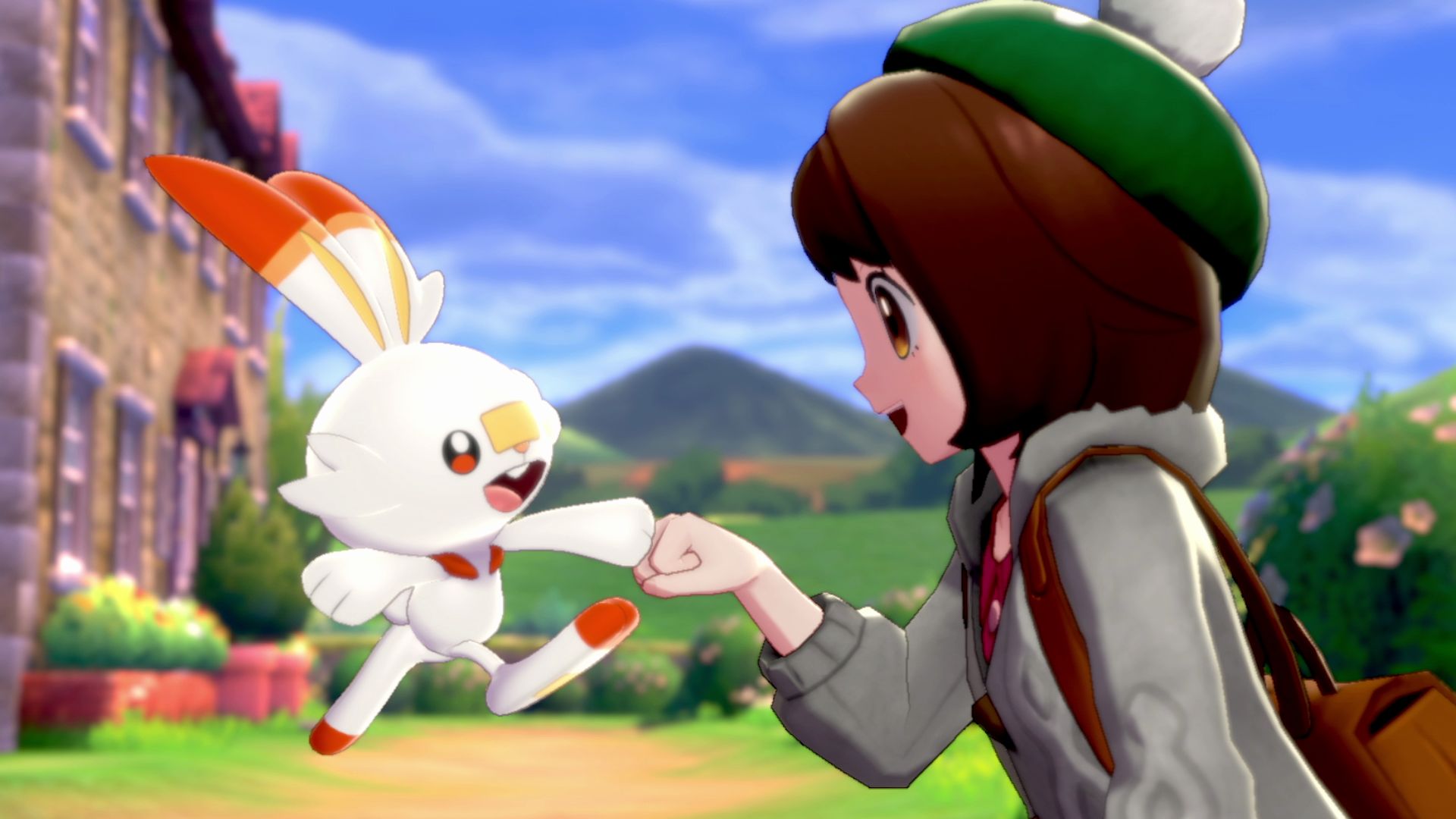
Credit: Nintendo
Gordon Calleja, an associate professor for the University of Malta’s Institute of Digital Games, has written on the link between digital games and escapism. The main claim of his work is that the idea of digital escapism as inherently bad comes from a misconception that the “virtual” and “real” world exist on completely opposite ends of a binary, when in reality what we do in virtual spaces reflects back into our disconnected lives.
Calleja writes that one of the functions of escapism in games is to maintain a kind of emotional “homeostasis,” the process that helps us better balance our emotions. Escapism becomes negative when there is no more movement between the virtual and real world: only being stuck in the virtual, or only being stuck in the real.
“With nostalgia, we are either looking at a comforting familiarity, or we are focusing on a stuckness within the past,” Calleja told EGM. “The misunderstanding of escapism comes from a misunderstanding of imagination: Imagination is used to create spaces and switching to inhabit them. That’s why I fervently believe that escapism, this idea of moving into the other, is a necessary part of the everyday. It is a necessary part of managing our mistakes, and necessary for managing boredom.”
In an era when documenting our memories and milestones has become effortless, we place so much emphasis on broadcasting our productivity. Instagram profiles and Facebook timelines are nothing if not public narratives of personal progress, proof to the world that we’re always moving forward—even when that may not be the whole truth.
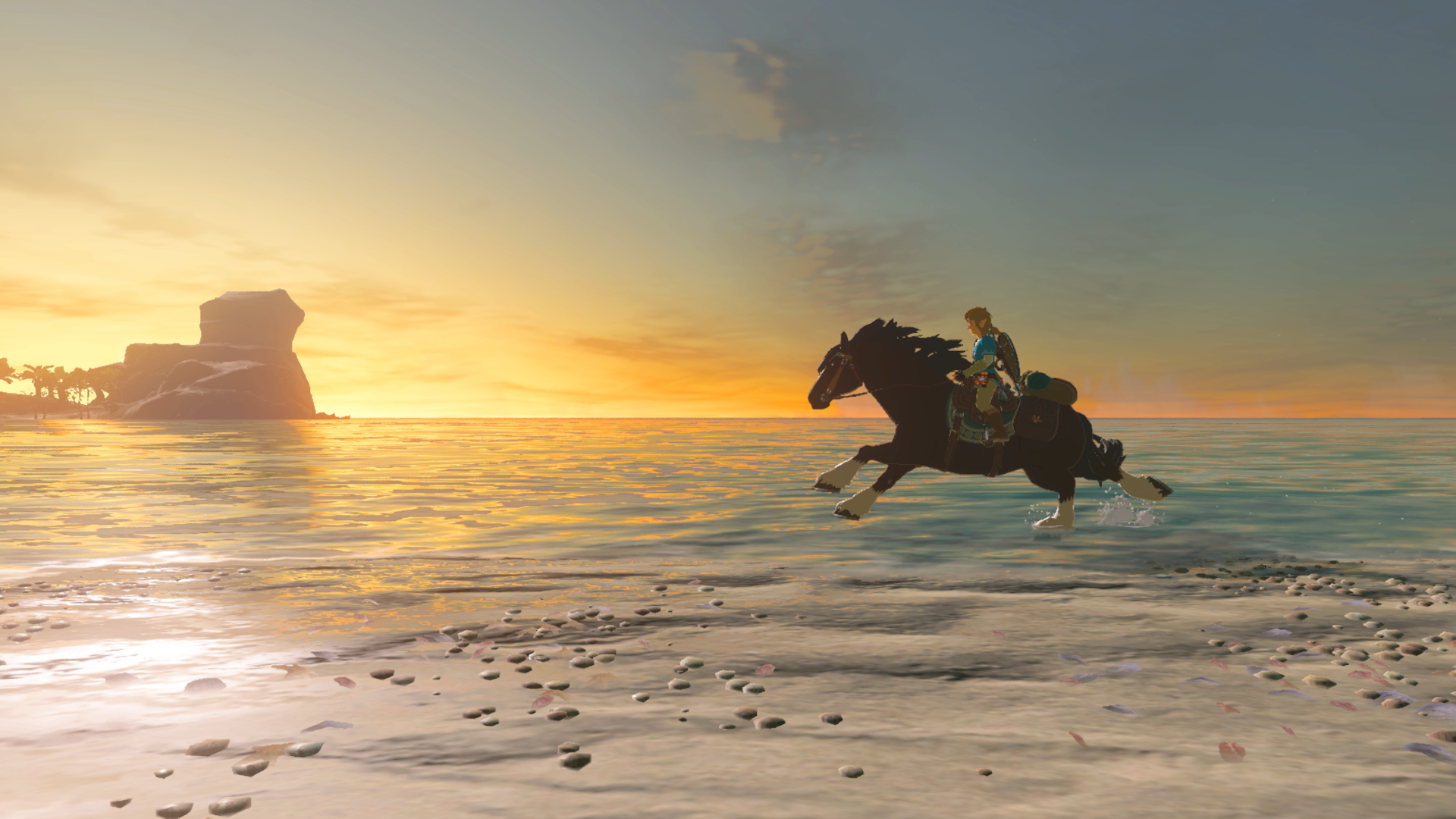
Credit: Nintendo
Returning to the games from our childhoods can fulfill a similar, albeit more personal, role. Games allow us to feel successful when the outside world doesn’t, and they can soothe us in times of despair. When an object of nostalgia help us through traumatic situations, that relief becomes a new layer to our nostalgia, compounding the sense of comfort we associate with these virtual spaces.
When my grandma died, I didn’t even understand what had happened enough to feel sad. I was 15, and her death was the first I’d ever experienced personally. Maybe I’d thought she would actually live forever. Even though I didn’t cry about her death until months later, I played hours and hours of Pokémon HeartGold after not having touched my DS in four years. My grandma had hidden it from me when she found out I’d been playing during math class.
In that virtual space, I didn’t have to worry about prying relatives or the fallout on my mom’s side of the family. It was just a space of quiet catharsis—one that I found that I could repeatedly come back to when someone left my life. I go back to HeartGold whenever I have to deal with a real or potential loss, be it a bad breakup, a friend leaving, or another family member falling sick. For me, the game is a simple reminder that there was, and can be again, an escape from grief.
Header image: Animal Crossing: New Horizons. Credit: Nintendo.

Jessica is a NYC based writer with bylines in Vox and Electric Literature. She loves writing about video games and watching bad TV on the weekends.